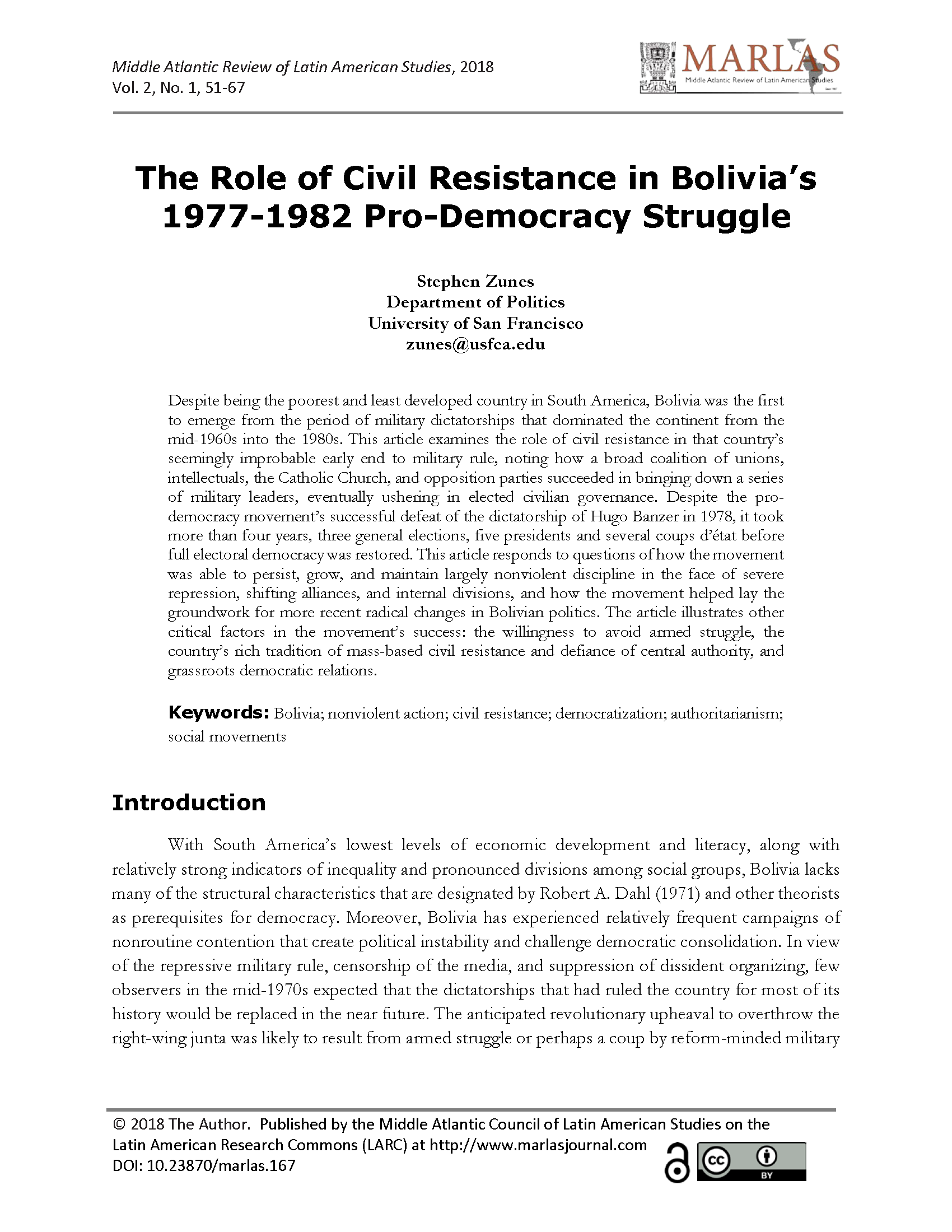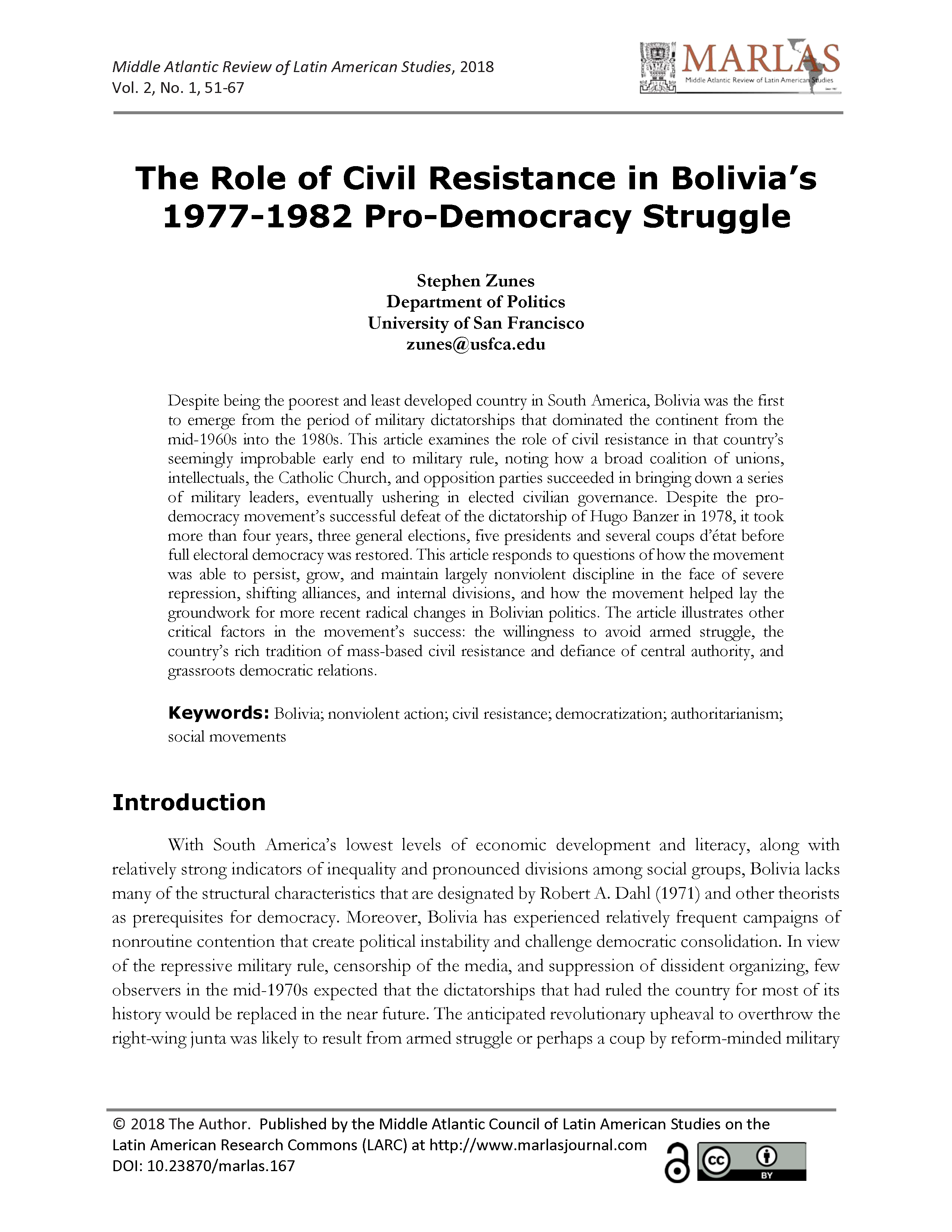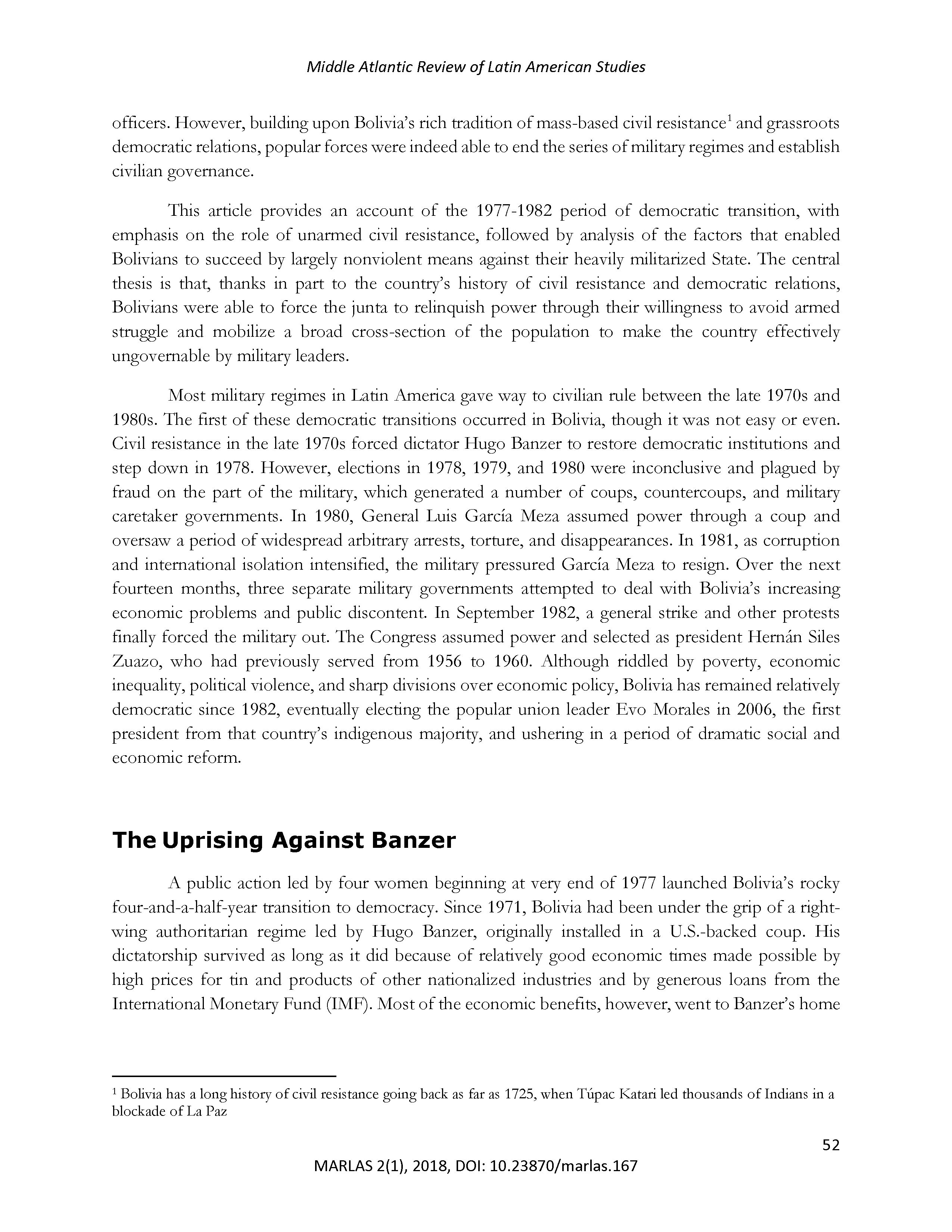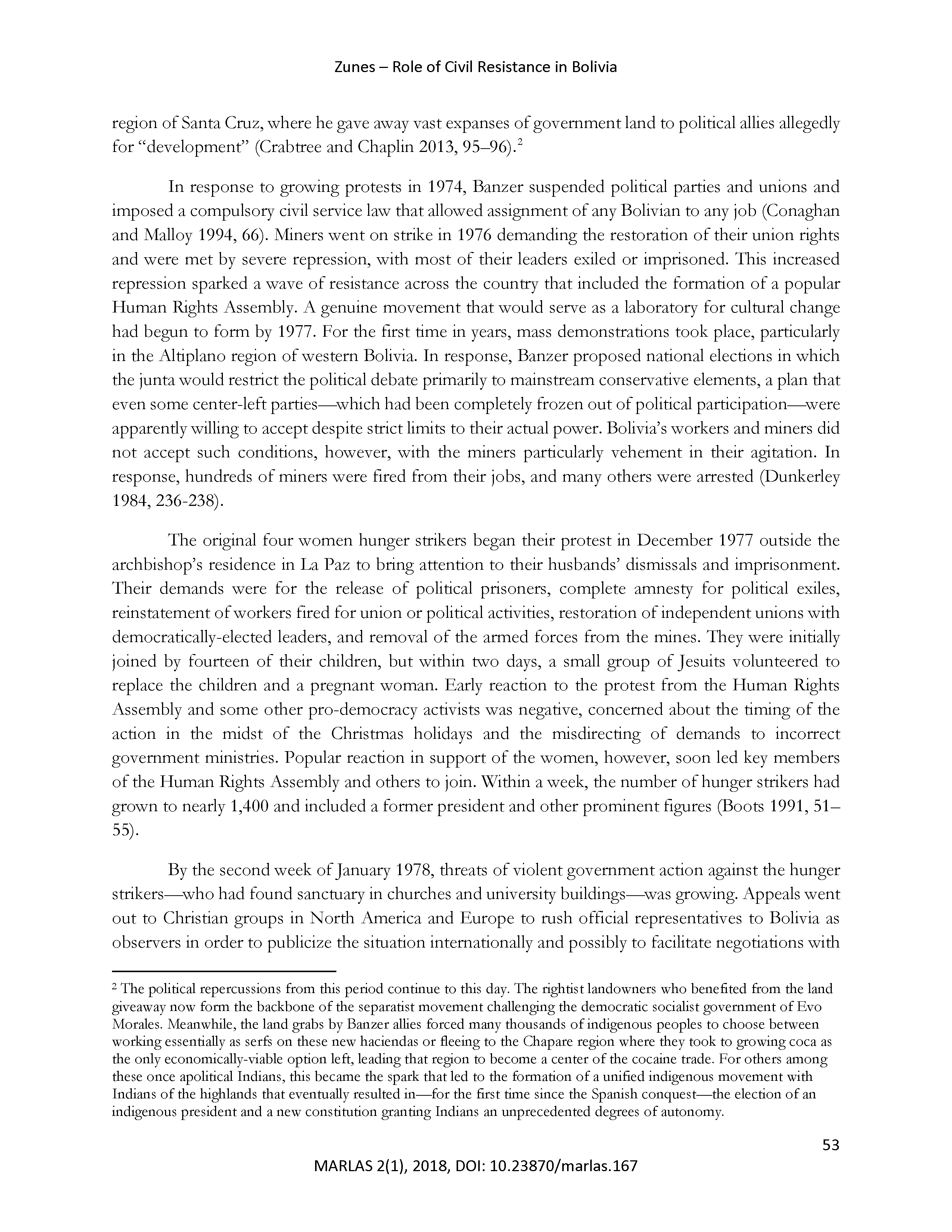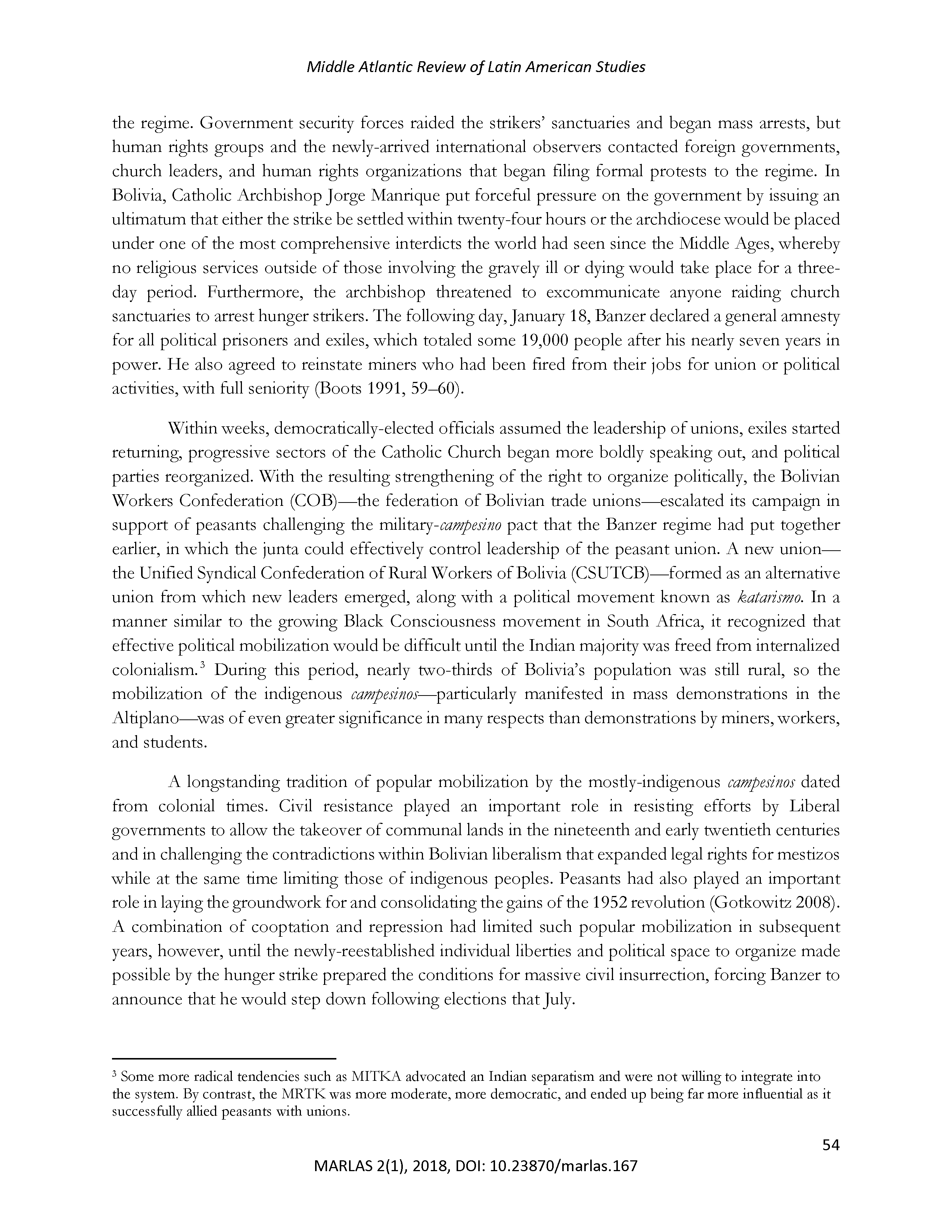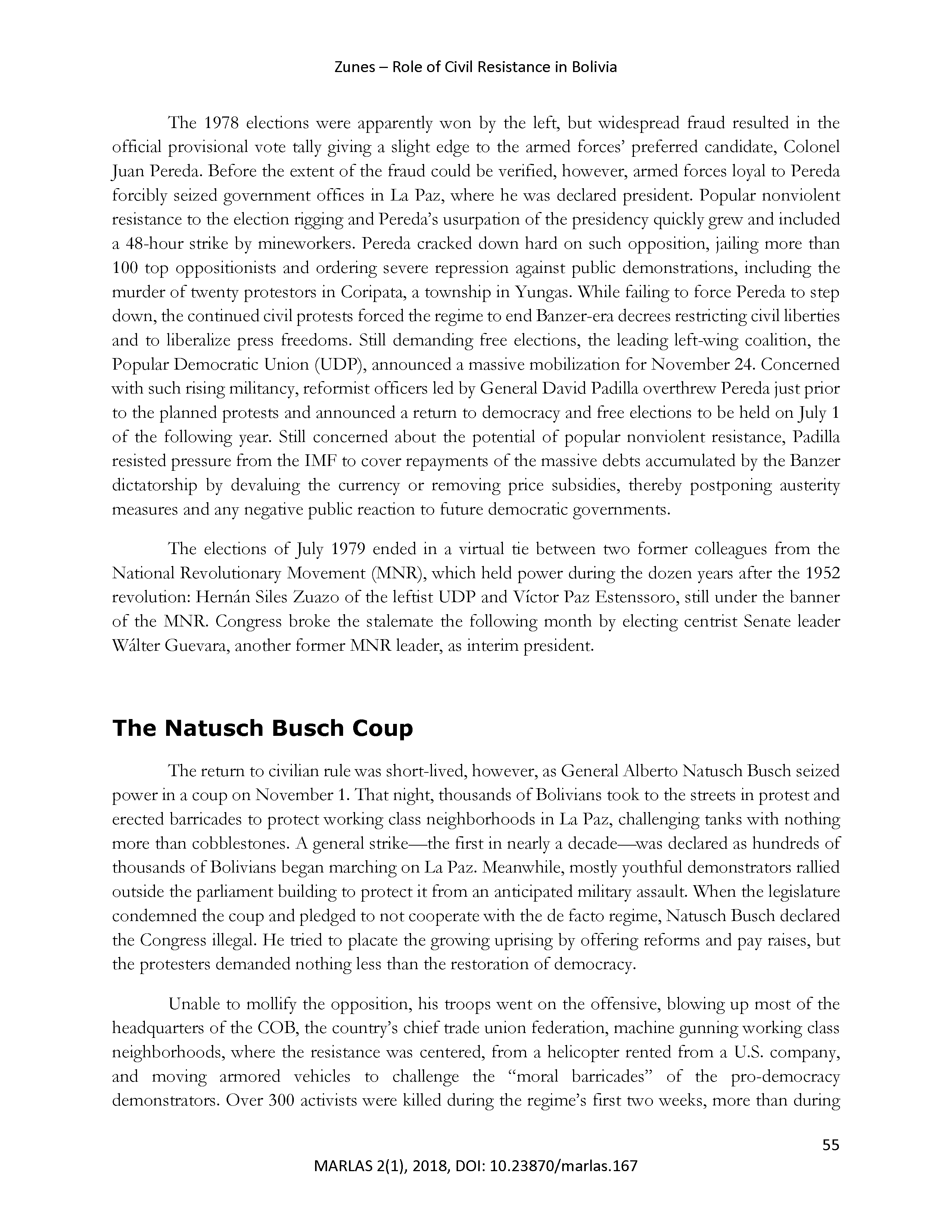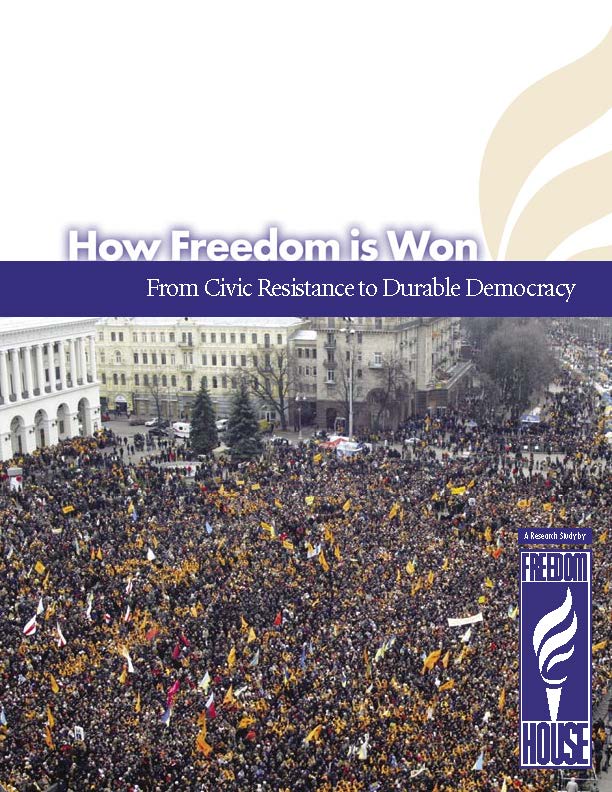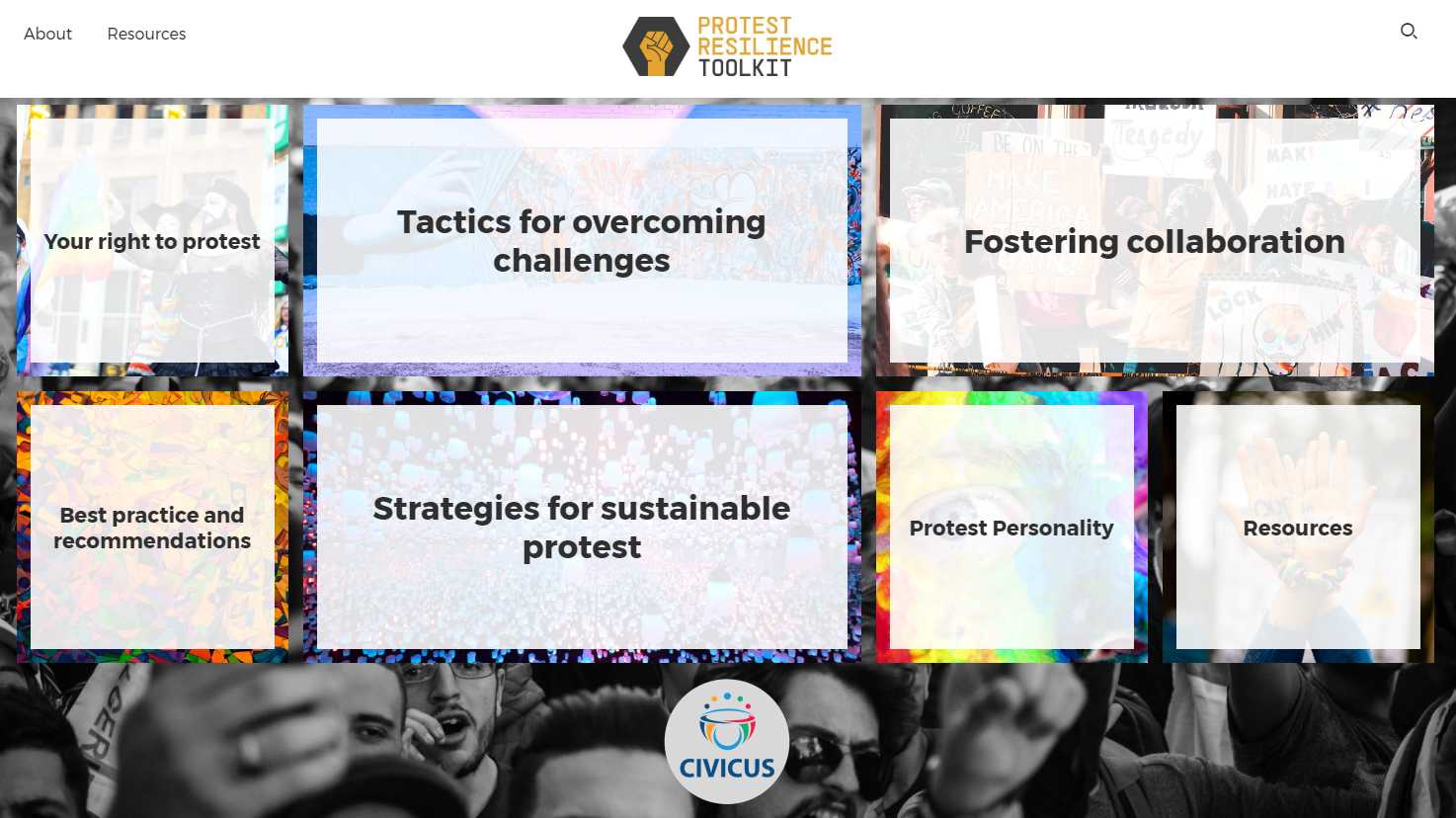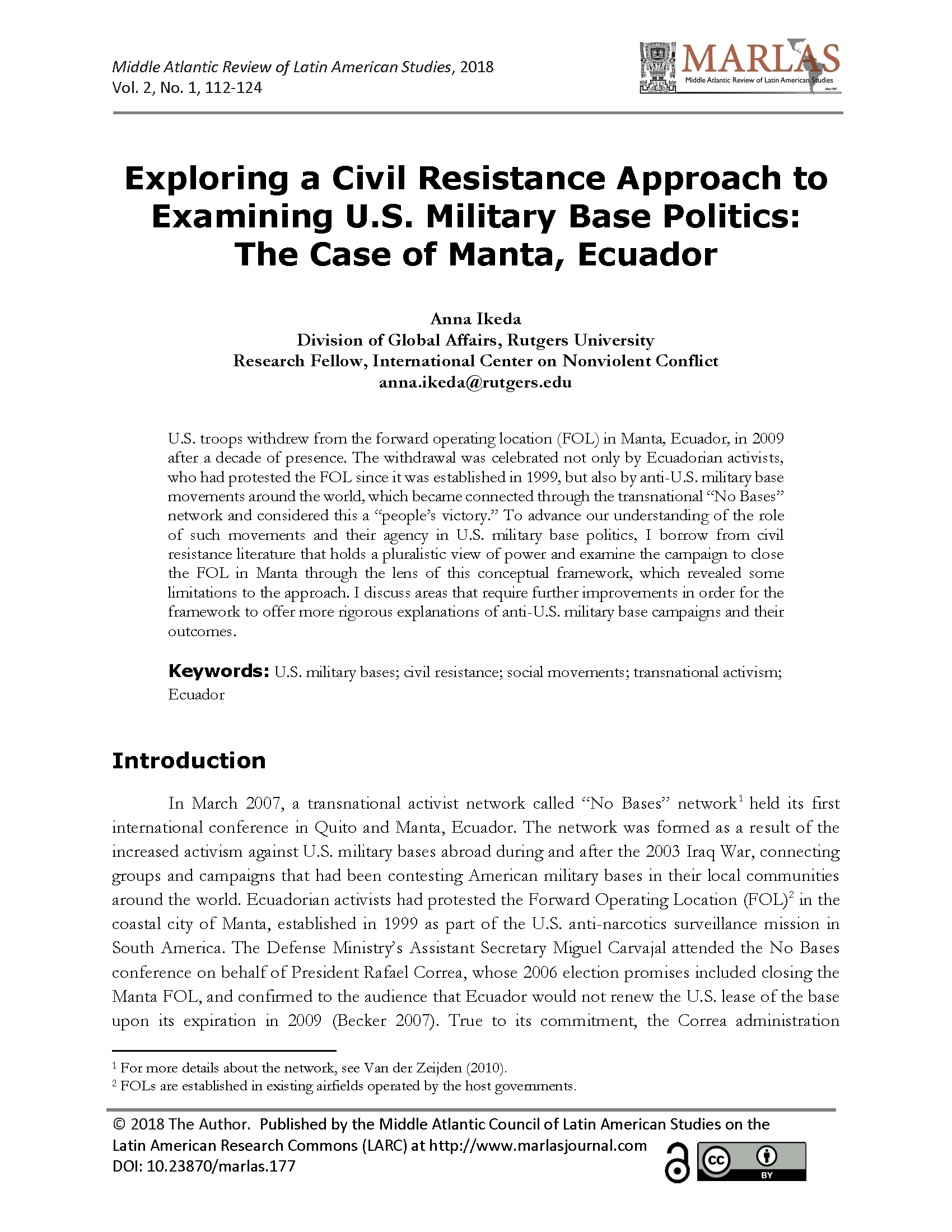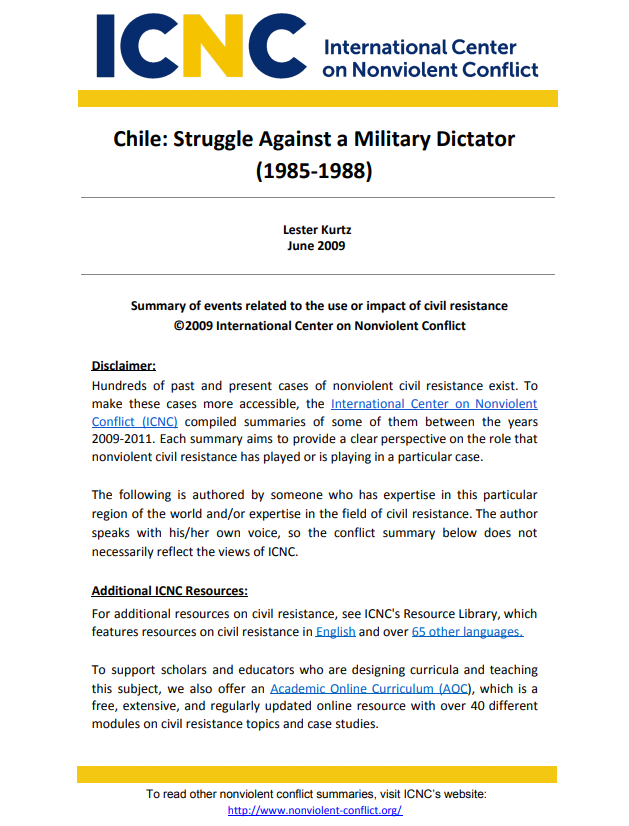The Role of Civil Resistance in Bolivia’s 1977-1982 Pro-Democracy Struggle
Despite being the poorest and least developed country in South America, Bolivia was the first to emerge from the period of military dictatorships that dominated the continent from the mid-1960s into the 1980s. This article examines the role of civil resistance in that country’s seemingly improbable early end to military rule, noting how a broad coalition of unions, intellectuals, the Catholic Church, and opposition parties succeeded in bringing down a series of military leaders, eventually ushering in elected civilian governance. Despite the prodemocracy movement’s successful defeat of the dictatorship of Hugo Banzer in 1978, it took more than four years, three general elections, five presidents and several coups d’état before full electoral democracy was restored. This article responds to questions of how the movement was able to persist, grow, and maintain largely nonviolent discipline in the face of severe repression, shifting alliances, and internal divisions, and how the movement helped lay the groundwork for more recent radical changes in Bolivian politics. The article illustrates other critical factors in the movement’s success: the willingness to avoid armed struggle, the country’s rich tradition of mass-based civil resistance and defiance of central authority, and grassroots democratic relations.
Middle Atlantic Review of Latin American Studies, 2018
Vol. 2, No. 1, 51-67
